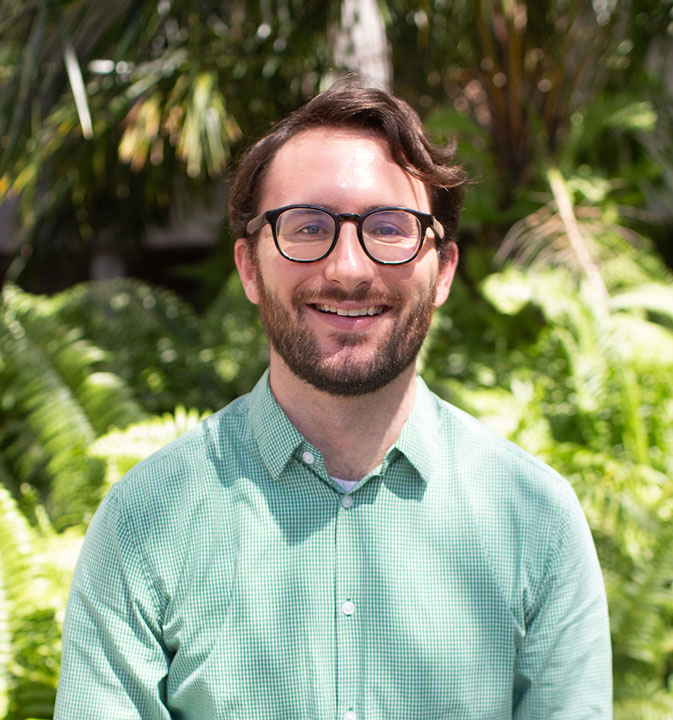Arg! FIU professor teaches American literature class on pirates

May 19, 2022, 2:00 PM.
article key points
In defiance of the notion that early American literature is the study of dusty old books, Professor Mark Kelley brings the fascinating life of pirates to life while teaching literature to online students.

For College of Arts, Sciences & Education English Assistant Professor Mark Kelley, there’s nothing as exhilarating as being out on the water—the feeling of freedom, the vastness, the intrigue of the horizon—all of it does something to him that is hard to explain in words. He stokes this intrigue and love of early American history through his studies on the writings of some of our nation’s earliest sailors—pirates.
“Pirates are really fascinating because they are very fun and extremely frightening. They exist in fantastical societies, have swashbuckling tales, are spoken about in sermons and they recount stories of enslavement and violence in their diaries,” says Kelley whose personal website includes a quote by sailor-author Benjamin Morrell, Jr.: “For sailors, though they have their jokes/Still feel and think like other folks.”
Kelley, who’s taught literature courses on “Transoceanic American Studies” at the graduate level, and “Rising Tides and Modern Waves: Early American Pirate Literature,” was fortunate enough, he says, to be able to teach one of his classes aboard a ship inspired by the one that reached present-day San Diego in 1542.
“I marveled at my good fortune. I was teaching at sea,” he declares. Literature courses in college are anything but boring, he insists and notes the varied titles of courses the English literature department features.
Global thinking
From texts that recount true crime to pirate trial transcripts, Kelley’s course, AML 4213 – Early American Literature: Pirate Literature, which he teaches each year online, pieces together the stressors early settlers dealt with including how events shaped the nation from the days of King George to Confederate money and beyond. He stresses that the course isn’t just for students in pursuing the B.A. in English: Literature Track.
“If you’re interested in going to law school, you need to take this course,” states Kelly who explains that it is a study of cases and provides students with the analytical skills that law schools want. “Yes, this course teaches students about pirates, but it also trains them to be global thinkers, to make those cultural, political and economic connections.”
Contemporary application
A look at his English literature course syllabus offers insight to the seriousness of the topics covered. Kelley underscores the compelling value of the critical thinking provided in the course. Pirates have stories of betrayal, were involved with land rights, slavery, gender issues, sexual identity, and political and social forces. Much of these stories lend understanding to contemporary issues such as what is happening with Russia and the Ukraine, he states.
“History repeats and the same rhetoric comes up over and over,” he affirms, so learning the language and nuances of a period can offer context to current global struggles.
“The pirate is not the figure students know from childhood,” he describes. “They are more interesting than Jack Sparrow and they are more vicious and morally compromised.”
Ideas in words
“Literature has a way of putting really complicated ideas into words,” says Kelly as he explains how sailors lived in isolation. Their diaries document the emotional struggles of being alone and cut off—feelings many can relate to having experienced the effects of COVID-19.
“My class recreates a world for students to give them a view of the richness of the past early America had and its voice. Pirates offer us a window into how to handle cataclysmic changes in culture and society—discourse that is tremendously valuable today,” he concludes.
